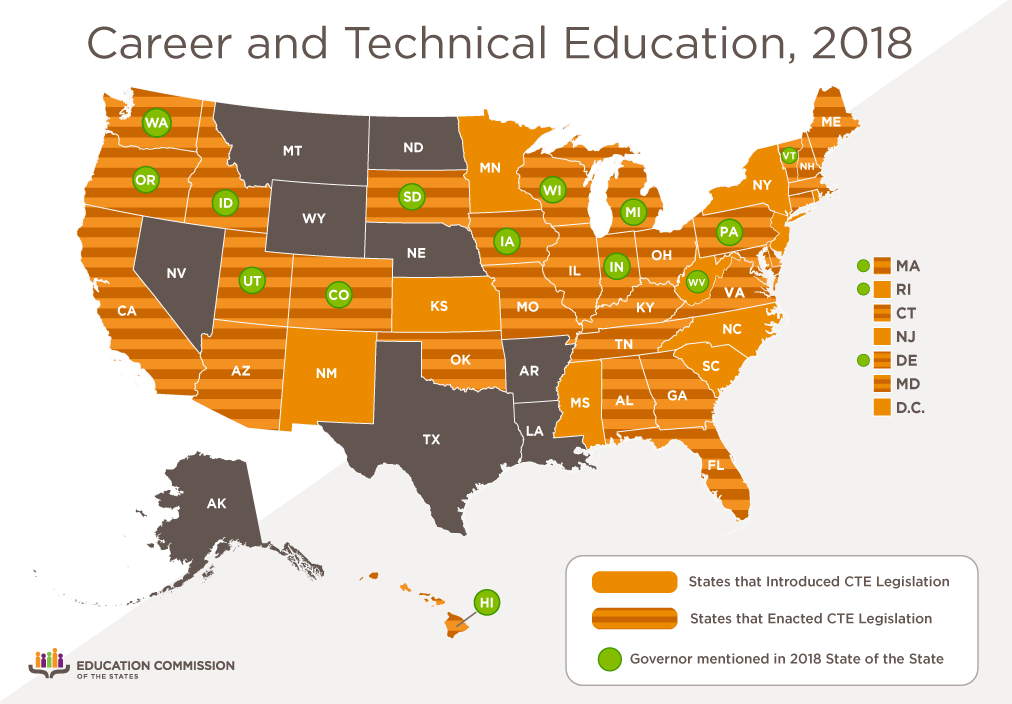As the sun sets on many state legislative sessions, it’s a good time to examine trends in policymakers’ work on a host of education policy issues. One of the topics that saw the most action was state career and technical education (CTE) systems.
Each year, we track legislation in our State Education Policy Tracking resource and review each governor’s State of the State address. The year began with at least 16 governors emphasizing CTE in their State of the State addresses. Legislatures followed suit and introduced more than 350 CTE-related bills, with more than 80 bills enacted or vetoed.

While the numbers indicate that states are prioritizing CTE, it’s worth taking time to reflect on how they shaped it. To provide a lens through which to view the legislation, let’s refer this blog post that outlines 10 components of a comprehensive approach to high school CTE policy. In 2018, more than 30 states enacted CTE legislation that centered on three of those 10 components:
- Real-World Learning Opportunities: States focused a significant amount of attention on creating opportunities for students to engage in work-based learning activities. For example, Georgia expanded opportunities for students to engage in internships, apprenticeships and cooperative educational experiences on the path to earning credentials.
- High School Graduation Requirements: States sought ways to provide students with credit for participation in CTE programs. Some states, like Florida and Maryland, passed legislation to allow students to earn high school credit for participation in apprenticeships, whereas in other states, like New Hampshire, legislation focused on allowing credit for CTE courses in place of other academic requirements.
- Teacher Qualifications: States generally took two different approaches in the area of teacher qualifications. On one hand, states like Ohio and Oklahoma, provided pathways to credentials for CTE teachers, and other states, like Michigan, provided exceptions to credentialing requirements while ensuring CTE teachers have technical knowledge.
In 2018, states generally continued to take piecemeal approaches; however, through a package of bills, Michigan brought together many of the 10 components in a comprehensive approach to CTE policy. At the center of the legislation is the Marshall Plan for Talent, which seeks to establish partnerships between educators, employers and other stakeholders to develop Michigan’s workforce. Notably, the legislation included:
- An allocated $100 million for grants to support CTE programming, the formation of curriculum, student guidance, teacher development and equipment. (S.B. 941)
- A provision requiring, in 2019-20, that all schools must provide instruction in career development for K-12 students, incorporating a curriculum to be developed by the department of education and the department of talent and economic development. (H.B. 5139)
- A provision permitting districts to employ non-certified teachers with specific career expertise and credentials to teach in a CTE program, with the intent to provide quality instruction. (H.B. 5141)
The 2018 legislative session provided many examples of how states are approaching CTE policy. Stay tuned to our State Education Policy Tracking resource for what’s to come in 2019.










